|
2022 was a difficult year for the digital asset space, particularly cryptocurrencies. Values plummeted and FTX, a company that ran a major exchange in cryptocurrencies, declared bankruptcy, losing billions of dollars in investors’ money. So, what is cryptocurrency? Does it have a future, and should we even care? The world of crypto is new to many of us, and it comes in many forms. This is a fast-moving space, with lots of twists and turns, and there’s new terminology to learn. This blog is my attempt to wrap my head around the emerging world of crypto. This new tech/finance space is not going away, despite a rough 2022. About twenty percent of American adults own cryptocurrency, so it is something that I will be paying attention to in the months and years to come. What is Crypto: When people talk or write about “crypto” they are usually referring to “cryptocurrency”. Cryptocurrency is virtual currency that uses cryptography to secure transactions digitally on a blockchain. More on the blockchain later. Cryptocurrency is digital, it doesn’t exist in a physical form. It is not produced or sponsored by a central government, and is not backed by gold or other asset to support its value. El Salvador and a few other countries have made bitcoin (the first cryptocurrency) an official currency, but most have not. China has banned it outright. Millions of people around the world are now using cryptocurrency as a form of money, but it is not a government backed (fiat) currency like dollars and euros. So, if it is not currency, what is it? It is a digital asset, which the I.R.S. defines as “the binary representation of anything having an economic value that can be owned”. A single unit of cryptocurrency is also referred to as a digital coin or token. Bitcoin: Bitcoin was the first cryptocurrency, is the most widely known, and most valuable. The first transaction using bitcoins was on May 22, 2010. Today the value of all bitcoins worldwide is over $360 billion. But bitcoin is not alone. There are over 20,000 different cryptocurrencies in existence, and the number is changing daily. Bitcoin was developed in 2008 by a programmer, or programmers, going by the name of Satoshi Nakamoto. It was during the depths of the financial crisis when Satoshi released the white paper “Bitcoin, a Peer-to-Peer Electronic Cash System”. The system was designed to bypass central banks and conventional currencies, which were not to be trusted. According to Bitcoin’s website, it was established to be an innovative payment network with a new kind of money. The network is known as Bitcoin, using the newly developed blockchain technology (more on the blockchain later). The new kind of money was the first cryptocurrency, known as bitcoin (lower case b). Bitcoin uses peer-to-peer technology to operate with no central banks. The management of transactions and issuing of bitcoins is carried out collectively by the network. Bitcoin is open-source, its design is public, nobody owns or controls Bitcoin, and everyone can take part. From these egalitarian beginnings, Bitcoin launched a new gold rush in digital assets, and a multi-billion-dollar worldwide infrastructure catering to investors and developers has sprung up. Buyer Beware: Bitcoin was designed to seamlessly facilitate payments across borders, without the need for banks, at little cost. But the real action is in speculation on the price of bitcoin and other cryptocurrencies. Bitcoin had no value when it was first introduced. It reached a high of $65,000 in November of 2021 before losing over 60% of its value in 2022. Today it trades at just over $21,000. Cryptocurrencies are easy to buy, but often come with high fees to acquire and store it. You are out of luck if you lose your “wallet” where your cryptocurrencies are stored, or if you forget your digital key (password) which identifies you as the owner. Coinbase is one of the most popular online platforms for buying, selling, transferring and storing bitcoin and other cryptocurrencies. Several traditional brokerage firms sell cryptocurrencies and/or funds that invest in cryptocurrencies or affiliated companies. You can even buy the major cryptocurrencies from special ATM machines. You may have seen them in drug stores and grocery stores. Before you invest in cryptocurrencies do your homework. They are highly speculative, and invest only an amount of money that you can afford to lose. Deal with experienced, reputable brokers. You don’t want to have your money disappear like it did with FTX. I don’t own any cryptocurrency for two simple reasons. Prices are highly volatile, and there is little regulation of this asset class. Treasury Secretary Janet Yellen has described cryptocurrencies as “very risky assets”, and she remains very skeptical, as you should. There are many unknowns about the future of cryptocurrencies which could affect their investment value. What happens if the U.S. government regulates them more closely, or bans them outright? What happens if the U.S. government decides to issue its own digital currency pegged to the dollar? These and other unknowns should give you pause when considering cryptocurrencies as an investment. But that doesn’t mean that cryptocurrencies and other digital assets don’t hold real promise. The Promise of Digital Currency: There are many advantages of digital currency over physical currency. The costs of producing, storing, and distributing physical currency are enormous. Physical currency can be easily lost, stolen, or destroyed. It can be counterfeited and used in the underground economy due to lack of traceability. Digital currency issued by a central bank would be cheaper, more efficient, and safer for people to use. It would leave a digital footprint, which would cut down on crime, tax evasion, and loss. Other advantages include faster, cheaper, and more efficient payment systems. Digital currency holds a lot of promise for places like Africa where large numbers of people don’t have access to banks and financial institutions. Digital currency could eliminate the need to have banks and other infrastructure in order to hold money and conduct financial transactions. Your cell phone could take the place of the local bank. Central banks around the world are exploring the development of their own digital currency. A digital currency backed by a central bank would have price stability, and be more widely accepted than today’s cryptocurrencies. Blockchains: The real promise that the emergence of digital assets has brought is the underlying technology that enables them, blockchains. There would be no bitcoin without Bitcoin, the original block chain that enables it. A blockchain is a database (digital ledger) of transactions that is updated and shared across many computers in a network. Every time a new set of transactions is added, it is called a “block”. The blockchain is decentralized, meaning that it doesn’t exist in a central location, but in computers all over the world. Each transaction is encrypted and distributed to all of the computers in the network. Hackers would have to access a majority of all computers in the network to change or delete a transaction, making the system very secure. Blockchains are immutable, which means that once a record is created it cannot be altered or deleted. They are typically open source, making a blockchain’s code and record of transactions open for anyone to inspect. In short, blockchains are public, permanent databases that are very secure, and not owned by anyone. Virtually anything of value can be tracked and traded on a blockchain network without the need for an intermediary or middleman. This cuts costs and reduces risk for each party involved in a transaction. Blockchains are ideal for financial transactions. But advanced blockchains will track real estate, intellectual property, patents, copyrights, insurance policies, medical records, and so much more. You can find more information on blockchains at this link. Ethereum and Smart Contracts: Since the development of Bitcoin, blockchains have been developed with features and benefits that bring value far beyond enabling cryptocurrencies. Ethereum is a blockchain network with its own cryptocurrency, “ether”, which is second only to bitcoin in popularity. Bitcoin is only a payment network, but Ethereum is that and much more. It is programable, which means that applications can be built that use the blockchain to create an ever-growing list of applications beyond the digital currency space. The built-in programming feature of Ethereum has allowed for the development of smart contracts, which have the potential of transforming many industries. Smart contracts are programs stored on a blockchain that run when predetermined conditions are met. They are used to automate the execution of an agreement so that all participants can be immediately certain of the outcome, without any intermediary’s involvement, increasing speed and reducing costs. Smart contracts have applications in real estate, financial services, insurance, medical records, gaming, legal services, the administration of public and private policies, and the list is growing daily. Here is a link for more information on Ethereum and smart contracts. Regulations: No one knows for sure what the future holds for cryptocurrency. But one thing is clear, government regulations are coming. The billions of dollars of investor money lost in the collapse of the crypto exchange FTX has caught the attention of Congress and the White House. Most legislators, as well as industry insiders, agree that more regulation is needed. But the question is, which agency should have regulatory authority over digital assets, exchanges, and dealers? The Securities and Exchange Commission (SEC) claims that digital currencies are not securities. The Federal Reserve says that digital coins, like bitcoin, are not currency. The Commodity Futures Trading Commission (CFTC) says that digital coins are not commodities. The only federal agency that has stepped to the plate with regulations has been the I.R.S. This makes sense, since the I.R.S. never misses an opportunity to find a new stream of tax revenue. The I.R.S. classifies digital assets as property, and considers any sales or exchanges to be taxable events. Last year President Biden signed an executive order that called on government agencies to study the “responsible development” of regulations of digital assets. Now the Treasury Department, SEC, and CFTC are working together to develop regulations for digital assets. Congress has been behind the 8 ball on this issue, and new regulations are needed sooner rather than later. Cryptocurrencies are not just a passing fade. Their utility will encourage central banks around the world to develop their own. Powerful new blockchains, like Ethereum, will transform the way business is conducted in many fields. Investors will continue to speculate on bitcoin, ether, and other digital coins. But without new regulations and investor protections, buying and trading digital assets will remain very risky. New regulations should also stimulate wider acceptance by consumers and retailers. I have only brushed the surface on the topics of cryptocurrency and blockchains. There are a lot of books and articles available on this exciting new frontier. I predict that one day blockchain technology will be as integral to businesses as the internet is today. If you enjoy reading this type of commentary please subscribe to my blog and tell a friend. You will receive an email notification when new blogs are posted. The email will come from the site’s email: armchairamerican1776 @gmail.com.
Thanks, Armchair American
0 Comments
|
AuthorThe Armchair American. Archives
November 2024
Categories
All
|

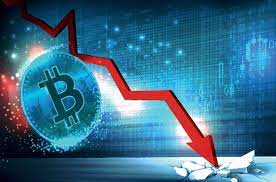
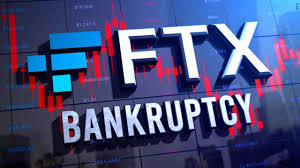
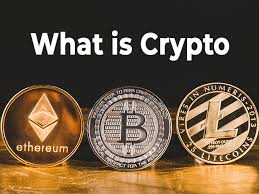


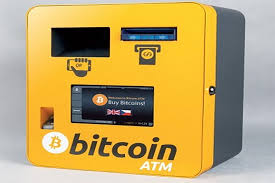
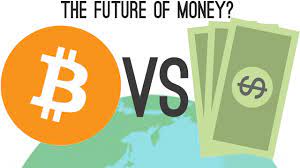

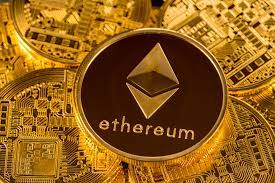





 RSS Feed
RSS Feed